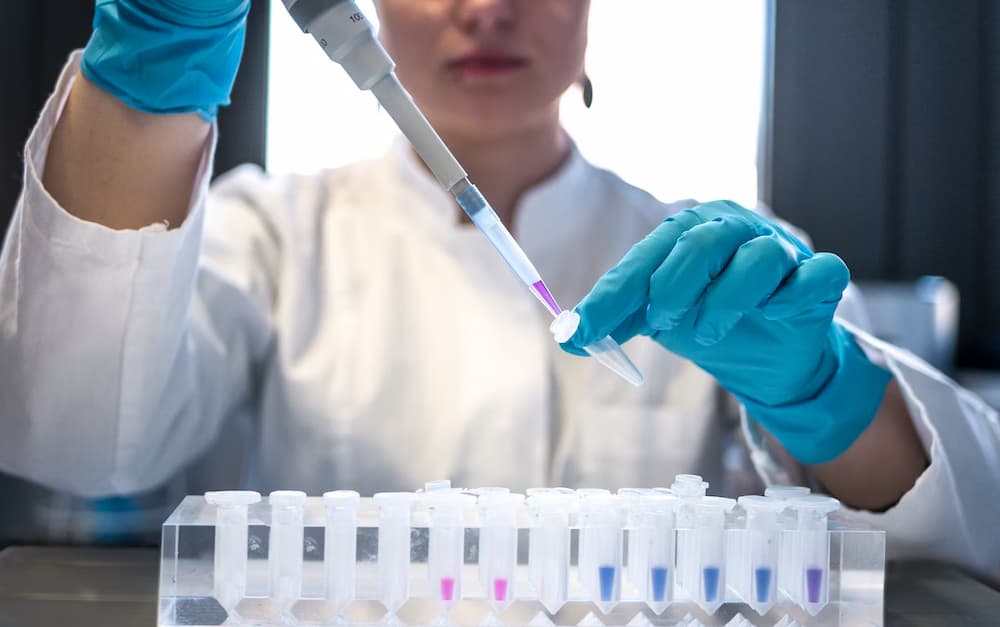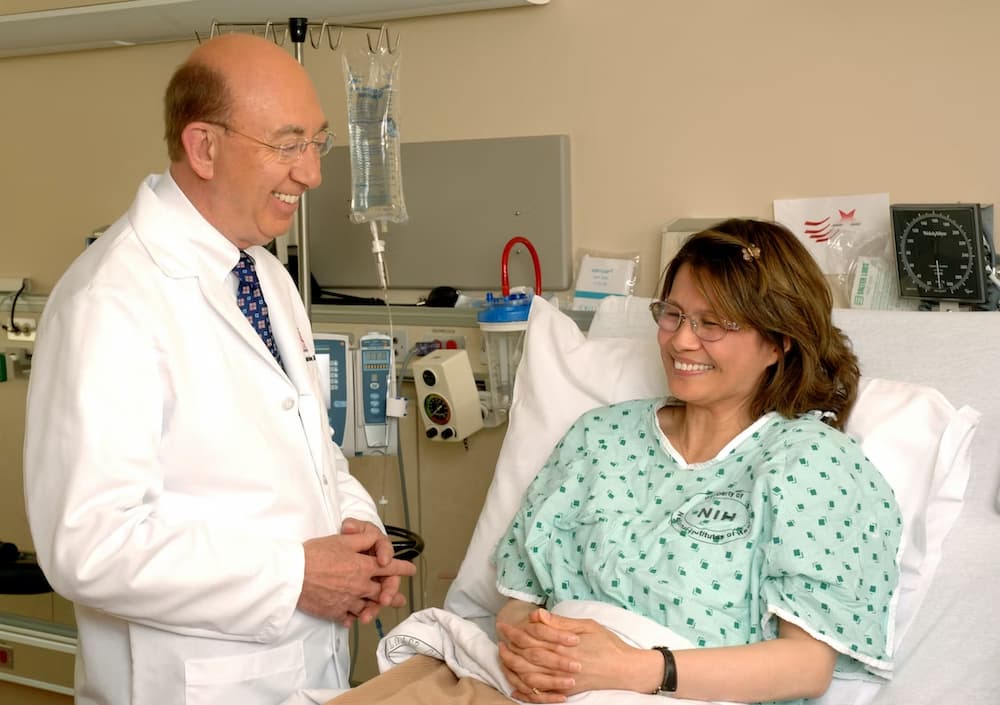Cardiovascular diseases (CVD), especially atherosclerosis, are still one of the leading causes of death around the world. The problem is that most treatments start only after symptoms appear, and the focus is then on eliminating them rather than preventing them.
But what if we could repair the heart with stem cells? By treating the problem early on, patients may have better chances of survival. That’s why stem cells for atherosclerosis are a hot topic in research right now. Stem cell therapy could prove useful for patients with damaged hearts and severe inflammation. Let’s have a detailed look at this therapeutic modality.

What Is Atherosclerotic Vascular Disease?
Atherosclerosis is a chronic, vascular disease that puts your blood flow at risk and increases the odds of clotting. Based on recent reports, the prevalence of atherosclerosis varies from 17% in people younger than 20 to 85% in adults over 50.
Atherosclerosis tends to cause strokes, heart attacks, and chest pain. But it’s not just a heart problem; it can happen in any artery in the body, such as the arteries that provide blood to your lower body, stomach, brain, and kidneys.
To understand the issue more in-depth, let’s start with the basics. The arteries carry and transport blood. The normal flow of blood helps the heart function properly. But when there is a substance that glues itself inside the walls of these arteries and stacks over time, that’s when atherosclerosis can happen.
This substance has a sticky consistency due to the presence of fibrin, which captures platelets from the bloodstream, potentially leading to vessel thrombosis. The main component of the plaque is cholesterol, which is essentially similar to fat.
Get a free online consultation
Contact us to learn about the expected results of the treatment, its cost and duration.

Medical Advisor, Swiss Medica doctor
How Does Stem Cell Therapy Work for Vascular Disease?

Stem cell treatment is a form of regenerative approach for diseases. Clinical trials show that the use of stem cells could change the way we treat CVDs. This therapy can stimulate the repair of the damaged heart muscle and offer promising results in treating vascular diseases.
Stem cells can replace various types of cells in the body, for example, smooth muscle and endothelial cells. Recent studies suggest that adult stem cells can repair damaged endothelial cells. This can help restore the vessel’s integrity and function. Stem cell therapy for vascular disease could be used after procedures like surgical vein grafting or balloon angioplasty.
When it comes to using stem cell therapy in patients with vascular complications, another study demonstrated positive outcomes. Such therapy helped improve ulcer healing and clinical parameters and reduced the risk of amputations.
Indications and Contraindications for Cell Therapy for Vascular Disease
The field of stem cell therapy for peripheral vascular disease is constantly evolving. The contraindications may vary based on the type of cells used, ongoing research, and the patient’s health state. For more details, we encourage you to consult with our specialist.
Indications
- Critical Limb Ischemia (CLI): cell therapy can be considered for CLI patients. Recent data from stem cell clinic showed that the therapy may improve clinical outcomes.
- Peripheral Arterial Disease (PAD): patients with PAD can also be viewed as candidates for cell therapy.
- Ineffective Revascularization: patients who have had surgical vein grafting or balloon angioplasty with little success may consider cell therapy.
- Chronic Ulcers: patients with ulcers that don’t heal may respond to cell therapy.
Contraindications
Although each case is considered on an individual basis, below are some of the most common contraindications. We try to accommodate even in the most difficult cases, but you should always talk to one of our doctors.
- Active cancer or history of cancer, as stem cell therapy may promote tumor growth if it is already present in the body.
- Pregnancy or breastfeeding, as the effects of stem cell therapy on the fetus or breastfeeding infant are not well understood.
- Severe coagulation disorders, as stem cell therapy may increase the risk of bleeding complications.
- Allergic reactions or hypersensitivity to components used in stem cell therapy procedures.
Advantages of Stem Cell Therapy for Atherosclerosis
Stem cell therapy for vascular disease can offer many benefits.
It can:
- Offer anti-inflammatory compounds: mesenchymal stem cells atherosclerosis can curb inflammation. MSCs can decrease the uptake of cholesterol. The therapy can interfere with the process that makes atherosclerosis form in the first place.
- Reduce mortality rates: this therapy may be able to cut the risk of death from cardiovascular disease by 80%. It offered promising results for patients with damaged hearts and severe inflammation.
- Provide a “paracrine effect”: one of the notable aspects of this therapy is its ability to dampen the immune response. This feature holds particular significance for patients dealing with autoimmune diseases or transplant rejection.
- Boost the healing process: the therapy can help regenerate damaged blood vessel tissues.
- Promote angiogenesis: stem cells for atherosclerosis stimulate the formation of new and functional capillaries in areas where blood flow is impaired, a process known as angiogenesis.
It’s important to point out that stem cell clinics are still studying the impact of this therapy. It’s critical to consult with a specialist before you choose any such treatment.
The Impact of Stem Cell Therapy on Atherosclerosis
At the moment, cell therapy is the most actively developed treatment. It can offer effective results for managing CVD associated with atherosclerosis. However, stem cells for atherosclerosis have their limits.
Doctors have used stem cells directly in the arteries or muscles of patients with severe peripheral artery disease (PAD). Some studies found positive outcomes. Patients experienced
- Reduced risk of stroke or heart attack
- Longer periods without amputations
- Improved quality of life
However, PAD patients who also had other issues — for instance, active smokers or people with alcohol or drug addiction — saw less results than their more healthy counterparts.
So, if you are considering getting stem cell therapy for vascular disease, we encourage you to book a free no-obligation consultation with one of our professionals and learn how it can help you. Many factors can impact its effectiveness, like whether you have any comorbidities or unhealthy habits.
Safety of Stem Cell Therapy and Possible Side Effects
The adverse reactions to stem cell therapy for vascular disease vary.
These can include:
- Low-grade fever
- Nausea
- Headache
- Exhaustion
- Chills
They tend to be mild and short-term.
Overall, any stem cell center considers this therapy to be very effective and relatively safe.
What Type of Improvements Can I Expect from Stem Cell Therapy?
Some of the improvements from stem cell therapy for peripheral vascular disease can include:
- Better blood flow
- Reduced inflammation
- Tissue regeneration
- Prevention of plaque formation
- Symptom relief (i.e. chest pain or discomfort)
- Improved cardiovascular function
Keep in mind that many factors can influence the effects of mesenchymal stem cells atherosclerosis. More data is necessary to study its long-term safety and efficacy.
So far, gene therapy stem cells in mice atherosclerosis have proved useful for reducing inflammation. Therefore, it can have good therapeutic potential.
Cost of Stem Cell Therapy for Atherosclerotic Vascular Disease
The stem cell treatment cost depends on the treatment facility, number of sessions, location, and any additional services. Like diagnostic tests, consultations, follow-up appointments, etc. It can cost anywhere from €7,000 to €25,000.
The factors that affect the price are:
- The source of the cells
- The number of cells used
- Type of stem cells
- The location of the stem cell clinic
Before you make any financial commitment, it’s always recommended to do your research. For instance, talk to a specialist in your local area, read the research, and find out more about the nature of these cells. For example, are they sourced from bone marrow, adipose tissue, or the umbilical cord? One of our healthcare experts can always guide you through the whole process.
Send a request
Contact us to learn about the expected results of the treatment, its cost and duration.

Medical Advisor, Swiss Medica doctor
List of References
Saudi Pharmaceutical Journal, Opportunities and challenges in stem cell therapy in cardiovascular diseases: Position standing in 2022; September 2022, Pages 1360-1371; https://www.sciencedirect.com/science/article/pii/S1319016422001657
Shabnur Mahmud, Safaet Alam b, Nazim Uddin Emon, Umme Habiba Boby, Kamruzzaman, Firoj Ahmed, A.S.M. Monjur-Al-Hossain, Afroza Tahamina, Sajib Rudra, Marzina Ajrin;
The Role of Mesenchymal Stem Cells in Atherosclerosis: Prospects for Therapy via the Modulation of Inflammatory Milieu; Journal of Clinical Medicine; September 2019 https://www.ncbi.nlm.nih.gov/pmc/articles/PMC6780166/
Armita Mahdavi Gorabi, Maciej Banach, Željko Reiner, Matteo Pirro, Saeideh Hajighasemi, Thomas P. Johnston, and Amirhossein Sahebka
High Prevalence of Coronary Atherosclerosis in Asymptomatic Teenagers and Young Adults; June 2001 https://www.ahajournals.org/doi/10.1161/01.CIR.103.22.2705
Murat Tuzcu, Samir R. Kapadia, Eralp Tutar, Khaled M. Ziada, Robert E. Hobbs, Patrick M. McCarthy, James B. Young and Steven E. Nissen
Stem Cell Therapy in Heart Diseases – Cell Types, Mechanisms and Improvement Strategies; Volume 48, Issue 6; August 2018; https://karger.com/cpb/article/48/6/2607/75167/Stem-Cell-Therapy-in-Heart-Diseases-Cell-Types
Paula Müller; Heiko Lemcke; Robert David
Stem Cell Therapy for Vascular Disease, Trends in Cardiovascular Medicine; Volume 17, Issue 7, October 2007, Pages 246-251 https://www.sciencedirect.com/science/article/abs/pii/S1050173807001776
Benjamin Adams, Qingzhong Xiao, Qingbo Xu
The Role of the Stem Cells Therapy in the Peripheral Artery Disease; International Journal of Molecular Science, 2019 May; 20(9): 2233. https://www.ncbi.nlm.nih.gov/pmc/articles/PMC6539394/
Federico Biscetti, Nicola Bonadia, Elisabetta Nardella, Andrea Leonardo Cecchini, Raffaele Landolfi, and Andrea Flex
Cell Therapy for Critical Limb Ischemia: Advantages, Limitations, and New Perspectives for Treatment of Patients with Critical Diabetic Vasculopathy; Immunology, Transplantation, and Regenerative Medicine (L Piemonti and V Sordi, Section Editors). March 2021 https://link.springer.com/article/10.1007/s11892-021-01378-4
Gu, A. Rampin, V. V. Alvino, G. Spinetti & P. Madeddu
Clinical Trials of Adult Stem Cell Therapy for Peripheral Artery Disease; Methodist Debakey Cardiovasc J. 2013 Oct-Dec; 9(4): 201–205 https://www.ncbi.nlm.nih.gov/pmc/articles/PMC3846073/
Crystal M. Botham, Ph.D.,corresponding authora William L. Bennett, M.D., Ph.D.,corresponding author and John P. Cooke, M.D., Ph.D
Role of stem cell therapies in treating chronic wounds: A systematic review; World J Stem Cells. 2020 Jul 26; 12(7): 659–675. https://www.ncbi.nlm.nih.gov/pmc/articles/PMC7415243/
Anjali C Raghuram, Roy P Yu, Andrea Y Lo, Cynthia J Sung, Melissa Bircan, Holly J Thompson, and Alex K Wong
Autologous stem cell transplantation; https://dermnetnz.org/topics/autologous-stem-cell-transplantation
Author: Dr Leah Jones, Medical Registrar, Christchurch, New Zealand. Medical Editor: Dr Helen Gordon, Auckland, New Zealand. DermNet NZ Editor in Chief: Adjunct A/Prof Amanda Oakley, Dermatologist, Hamilton, New Zealand. Copy edited by Gus Mitchell. September 2020
Opportunities and challenges in stem cell therapy in cardiovascular diseases: Position standing in 2022; Saudi Pharm J. 2022 Sep; 30(9): 1360–1371 https://www.ncbi.nlm.nih.gov/pmc/articles/PMC9563042/
Shabnur Mahmud, Safaet Alam, Nazim Uddin Emon, Umme Habiba Boby, Kamruzzaman, Firoj Ahmed, A.S.M. Monjur-Al-Hossain, Afroza Tahamina,f Sajib Rudra, and Marzina Ajring
Target and Cell Therapy for Atherosclerosis and CVD; Int. J. Mol. Sci. 2023, 24(12), 10308; 4 May 2023 https://www.mdpi.com/1422-0067/24/12/10308
Yuliya V. Markina, Tatiana V. Kirichenko, Taisiya V. Tolstik, Anastasia I. Bogatyreva, Ulyana S. Zotova, Vadim R. Cherednichenko, Anton Yu. Postnov and Alexander M. Markin
Personalized Cell Therapy for Patients with Peripheral Arterial Diseases in the Context of Genetic Alterations: Artificial Intelligence-Based Responder and Non-Responder Prediction; 2021 Dec; 10(12): 3266. https://www.ncbi.nlm.nih.gov/pmc/articles/PMC8699290/
Amankeldi A. Salybekov, Markus Wolfien, Shuzo Kobayashi, Gustav Steinhoff, and Takayuki Asahara







